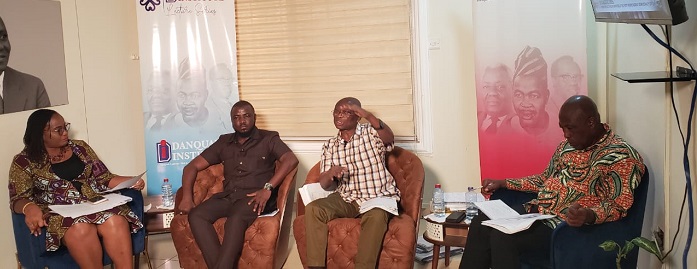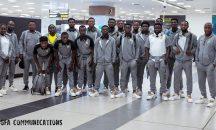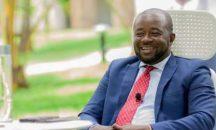REFLECTING ON 24TH FEBRUARY: A MARK FOR THE POST INDEPENDENCE DEMOCRACY OF GHANA

Ghanaians have been urged to reflect on the events that precipitated the 1966 coup d’tat that led to the overthrow of the first President of Ghana, Dr. Kwame Nkrumah and guard against same of the fourth republic.
Participating in a panel discussion organised by the Policy Think Tank, Danquah Institute, all three members of the panel agreed that military takeovers in all its forms and shape were major contributory factor to the country’s underdevelopment.
The dialogue held via zoom on Thursday, February 23, was under the theme “Reflecting on 24th February and the Post Independence Democracy of Ghana”.
Among the panelists were Dr. Alidu, Abdul Malik Kweku Baako and Mr. Afari Boadu gave views on the events leading to the coup and provided constructive views on the post 1966 period and the growth in our democracy.
Delivering her welcome address, the Executive Director of the Institute, Mrs Antoinette Tsibu-Darko said it was important for Ghanaians to use such reflective moments in history to contribute to building our democracy.
She said as a country, it was important that such reflective moments guided how we behaved going forward into our democracy.
A Research Fellow of the Institute and Dean of the Ghana Institute of Management and Pubic Administration (GIMPA) law school, Dr Kwaku Agyemang-Budu in the opening statement said the reflective dialogue should not be seen as celebration or commemoration of the 24th February 1966 coup d’tat.shared that:
He said to do so would be an affront to the letter and spirit of our 1992 Fourth Republican Constitution, which abhors coups d’etat, as affirmed by the Supreme Court in the case of NPP v. Attorney General.”
Dr Agyemang-Budu explained that the dialogue was to look at the lessons learnt from the spates of coups d’état and other incidents that had been an interference in Ghana’s constitutional order.
On his part, Dr Alidu, who is also a senior lecturer of Political Science at the University of Ghana, noted that while the coup d’tats were unfortunate, there were a number of issues that often created room for it to happen.
However, he said despite the reasons given to justify such occurrences, evidence had proven that military regimes often stifled development.
However, Mr. Kwadwo Afari while agreeing that coup d’tat in general were disruptive, stated that the coup that overthrew Kwame Nkrumah was.
“Was declaring Ghana a one party state necessary? No! The CPP had won almost all seats and therefore, it was purposeless for Nkrumah to declare a one party state. In an environment where there are no avenues to criticize or express views, there is the tendency for people to overthrow a regime” he stated.
Abdul Malik Kweku Baako whose views were not in consonance with the others said that the accusation that Nkrumah banned other political parties proved to be an unsustainable strategy as his accusers walked the same path after overthrowing Nkrumah.
“Towards the elections of the 2nd Republic, CPP elements were banned from contesting elections in Ghana. The Parliament of the 2nd Republic sat for 24 hours and passed legislation banning the CPP, a party that was national in character. What was the philosophy of that event? How different was that from what Nkrumah did?” he quizzed.
By Cliff Ekuful















